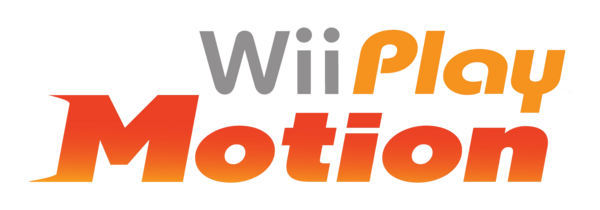
The official discord link if you wish to join the discord: https://discord.gg/j5RKwCvAFu
Support the wiki on our official Ko-Fi page or Patreon page!
Wii Series
From The Codex
Background
Wii Sports is a 2006 sports simulation video game developed and published by Nintendo for the Wii video game console. The game was released in North America along with the Wii on November 19, 2006, and was released in Japan, Australia, and Europe the following month. It was included as a pack-in game with the console in all territories except Japan, making it the first sports game included with the launch of a Nintendo system since Mario's Tennis for the Virtual Boy in 1995. Wii Sports is available on its own as part of the Nintendo Selects collection of games. The game is a collection of five sports simulations, designed to demonstrate the motion-sensing capabilities of the Wii Remote. The five sports included are tennis, baseball, bowling, golf and boxing. Players use the Wii Remote to mimic actions performed in real-life sports, such as swinging a tennis racket. The rules for each game are simplified to make them more accessible to new players. The game also features training and fitness modes that monitor players' progress in the sports.
Wii Sports Resort is a 2009 sports simulation video game developed and published by Nintendo for the Wii video game console, and is a sequel to Wii Sports. It is one of the first titles to require the Wii MotionPlus accessory, which was bundled with the game. Wii Sports Resort was first announced at E3 2008 and was released in Japan on June 25, 2009 and in nearly all other regions in the following month. While the game was originally released only as a stand-alone title, it was later bundled with newer Wii consoles alongside Wii Sports.
Wii Sports Club is a sports simulation video game from Nintendo for the Wii U. It consists of HD remakes of the individual sports from the 2006 Wii launch title, Wii Sports, which can be purchased individually or rented for a period of time. The first set of sports, bowling and tennis, were released in Japan on 30 October 2013, in Europe and North America on 7 November 2013, and in Australia and New Zealand on the later day. Golf was later released following a Nintendo Direct presentation on 18 December 2013. Baseball and Boxing were released on 26 June 2014 worldwide.
Wii Play is a party video game developed and published by Nintendo for the Wii console. It was released as a launch game for the console in Japan, Europe, and Australia, and was released in North America in February 2007. The game features nine minigames, including a Duck Hunt-esque shooting range, a fishing game, and a billiards game, each of which are designed to showcase the features of the Wii Remote controller.
Wii Play Motion is a video game for the Wii console and the sequel to the 2006 game Wii Play. It was released in North America on June 13, 2011; Europe on June 24; and in Australia on June 30, 2011. Unlike the original game which was developed entirely by Nintendo, Wii Play Motion's twelve minigames were developed by several different developers alongside Nintendo; these included Prope, Vanpool and Skip Ltd. among others. Similar to the original, all retail copies of Wii Play Motion are bundled with a Wii Remote controller (Red in Europe and Black in other regions) except Motion came with the Wii Remote Plus variant. The game is also the final Wii series game released on the Wii.
Wii Fit is an exergaming video game designed by Nintendo's Hiroshi Matsunaga for the Wii home video game console. It is an exercise game with several activities using the Wii Balance Board peripheral. As of March 2012 Wii Fit was the third best selling console game not packaged with a console, with 22.67 million copies sold. The game uses a unique platform peripheral called the Wii Balance Board, on which the player stands during exercise. The Board is not a rocking balance board but a device that tracks the user's center of balance. The game features yoga, strength training, aerobics, and balance games. Matsunaga described the game as a "way to help get families exercising together". Wii Fit has been used for physiotherapy rehabilitation and has been adopted by various health clubs around the world. It has been used in nursing homes to improve posture in the elderly. The game has received generally positive reviews, despite criticism over the lack of intensity in some of its workout activities.
Wii Fit Plus is an exergaming video game developed and published by Nintendo for the Wii console. The game was released in Japan on October 1, 2009 and other regions in the same month. Wii Fit Plus was announced during Nintendo's E3 2009 media briefing on June 2, 2009. The game is an enhanced version of Wii Fit, with 15 new balance and aerobics games (referred to as "Training Plus") and six new strength training and yoga activities. New features include a calorie burning counter, the ability for users to create custom fitness regimens or choose from a number of specialized routines based on specific objectives and available time, and the option to create profiles for pets and babies. Users are also able to navigate more quickly between exercises.
Wii Fit U is an exergaming video game developed by Nintendo for the Wii U console, and is the successor to the Wii games Wii Fit and Wii Fit Plus. Wii Fit U utilizes both the Wii Balance Board and the Wii U GamePad in gameplay, and is bundled with the newly introduced Fit Meter, an activity meter accessory. It was released in Japan on October 31, 2013, followed by North America and Europe one day later. It is also the only game on the system to support the balance board.
Wii Party is a party video game developed and published by Nintendo for the Wii video game console. The game heavily borrows game play elements from the Mario Party series, another Nintendo franchise. It is also the first game in the Wii series that Shigeru Miyamoto did not produce. The game was released in Japan on July 8, 2010, in North America on October 3, 2010, in Australia on October 7, 2010, and in Europe on October 8, 2010. Wii Party was revealed by Satoru Iwata in a Financial Results Briefing on May 7, 2010. It received somewhat mixed to positive reviews from critics and sold 9.35 million copies worldwide as of September 2019. A sequel, Wii Party U, was released for the Wii U on October 25, 2013.
Wii Party U is a party video game developed and published by Nintendo for the Wii U in 2013. It was announced in a January 2013 Nintendo Direct, and later detailed at E3 2013 and the October 2013 Nintendo Direct. It is the sequel to the 2010 Wii game Wii Party.
Wii Chess is a chess video game for the Wii console. It was developed by Nintendo and was released on January 18, 2008 in Europe as a budget-priced retail title. Under the name Tsūshin Taikyoku: World Chess (通信対局 ワールドチェス), it was released as a downloadable WiiWare title in Japan on September 30, 2008. The game was never released in North America or Australia, making it the only game in the Wii series that was not released in those continents. It is also the only game in the series that do not have playable Mii characters.
Wii Music is a music video game developed and published by Nintendo for the Wii video game console. The game was released in Japan and North America in October 2008, and in Europe and Australia in the following month. Wii Music is part of both Nintendo's Touch! Generations brand and the Wii series. Wii Music focuses on creating arrangements of existing songs by controlling the members of an on-screen band. In order to do so, players choose from a selection of musical instruments that are played by mimicking the required actions using the Wii Remote and Nunchuk. Unlike other music games, such as Guitar Hero and Rock Band, players are not scored on their performance and are encouraged to experiment with different ways to play various songs. The game has been advertised by Nintendo as a means of "bring[ing] the joy and creativity of musicianship to [one's] home without expensive music lesson.
Power of the Verse
The Wii Series is a fairly weak verse with most characters only reaching Wall level with Superhuman speed they howver displays some intersting haxs such as Perception Manipulation, Regeneration and Martial Arts, The top tier of the verse, Super Mii reaches Large Building level with Relativistic+ to Possibly MFTL+ speed and display haxs such as Flight, Energy Manipulation and Possibly Teleportation
Verse Scaling
regular miis should all scale to the durabilty feat of the wii fit Miis and sense they can harm eachother they would also scale AP wise, in terms of speed they scale to wii sport miis who Can react to 104 mph fast balls in baseball and tennis balls thrown so fast, they leave afterimages behind, Super Mii scale to this feat along with These Speed feats
Knowledgeable Members
Characters
Wii Sport/Wii Sport Resort
-
Mii (Wii Sports)
Wii Fit/Wii Fit U
-
Mii (Wii Fit)
Wii Party/Wii Party U
-
Mii (Wii Party)














